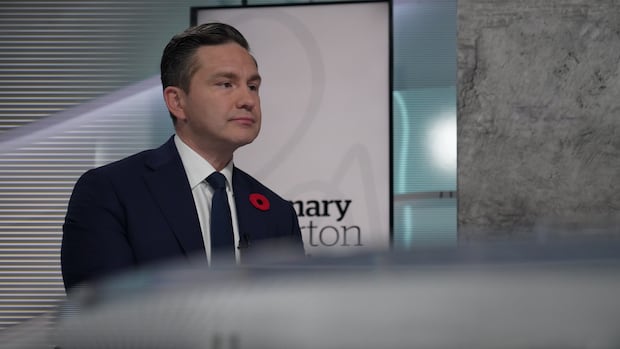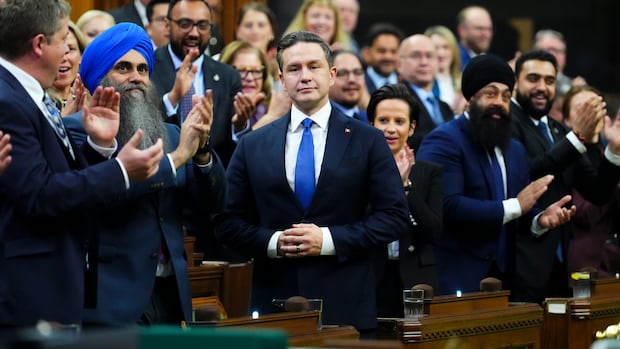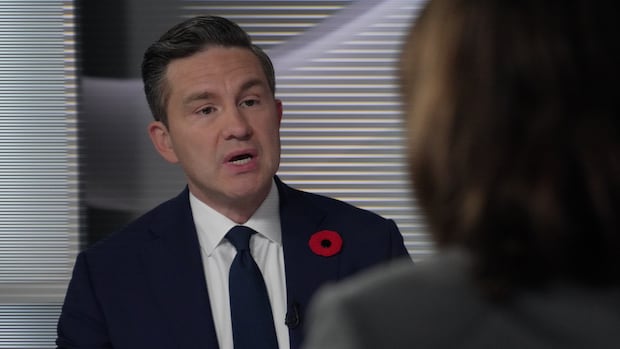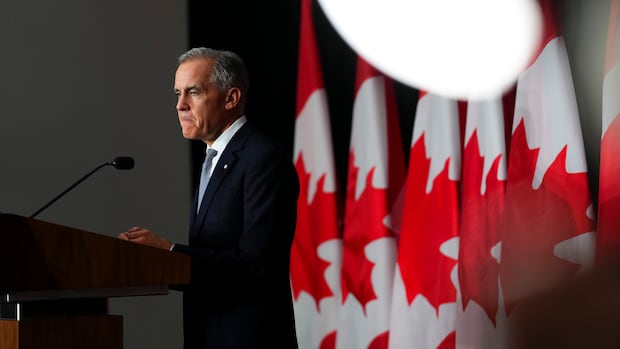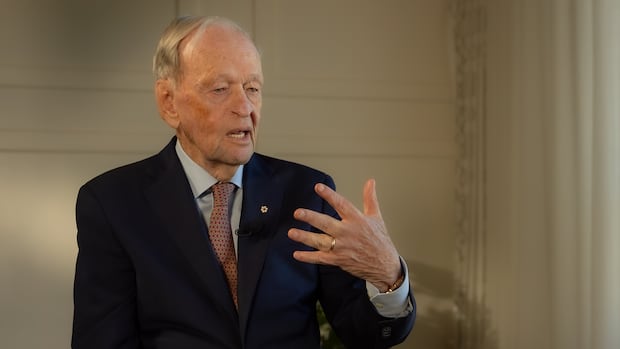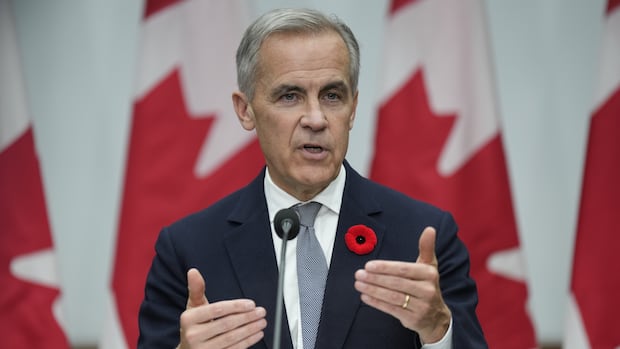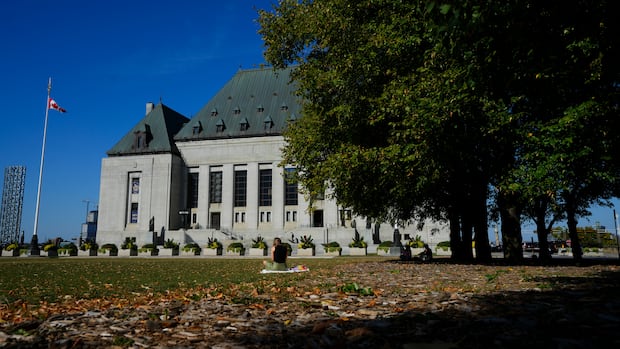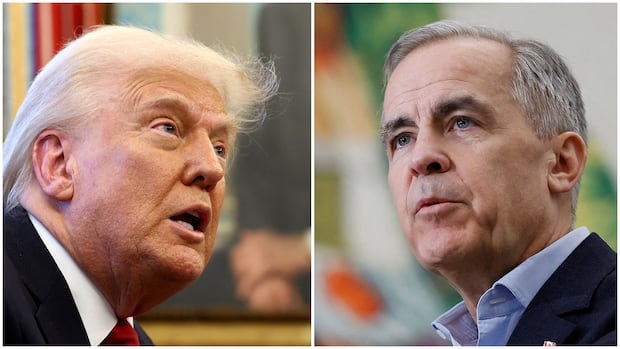With just days to go until the Liberal government introduces its much-anticipated federal budget, Conservative Leader Pierre Poilievre won’t say whether his party will oppose the upcoming legislation — instead insisting he needs to read the document before deciding.
“I don’t have telepathic powers to tell you what’s in it,” Poilievre said in an interview on Rosemary Barton Live airing Sunday morning. “If it were to bring down the cost of living — an affordable budget for an affordable living is something that I support."
The Conservatives have laid out a few key demands to the Liberals for the budget, including scrapping the industrial carbon tax and keeping the deficit below $42 billion.
When asked by host Rosemary Barton why he would accept a deficit as high as $42 billion, Poilievre said that “it’s not OK, but it is the disastrous state we’re in after 10 years of Liberal government."
“I would like a zero deficit, but the Liberals have put us in this mess, and I work with what I got.”
WATCH | Opposition parties waiting to see Liberal budget before deciding on how to vote:Chief political correspondent Rosemary Barton speaks with interim NDP Leader Don Davies about what he is hoping to see from Tuesday’s federal budget. Plus, Bloc Québécois finance critic Jean-Denis Garon talks about the conditions his party gave to the government to get its support for the budget. Then on The Sunday Scrum, Globe and Mail senior reporter Stephanie Levitz, Le Devoir columnist Emilie Nicolas and Toronto Star political reporter Ryan Tumilty discuss the challenges the government may face getting the budget through Parliament. And Jimmy Jean, vice-president, chief economist and strategist with Desjardins Group, takes a look at the current state of the Canadian economy ahead of the budget.When pressed by Barton that his comments mean he won’t support the budget, Poilievre reiterated that he hasn’t yet seen the document and wants the Liberals to introduce a budget that will make life more affordable for Canadians.
“If the government were in a collaborative mode, recognizing they only have a minority, they would accept my ideas for an affordable budget for an affordable Canada,” he added.
The Liberal government will need the co-operation of at least one other party in order to pass the budget, which is being tabled on Tuesday in the House of Commons.
Because the budget is a confidence vote, Canadians could be facing another federal election if it doesn’t pass.
WATCH | Poilievre criticizes Carney for not securing deal with U.S.:CBC News chief political correspondent Rosemary Barton speaks with Pierre Poilievre, the leader of the Official Opposition, about the disintegrating trade talks between Canada and the U.S.Prime Minister Mark Carney signalled on Saturday he’s prepared to fight an election over the budget should it come to that. He also said he’s “100 per cent confident that this budget is the right budget for this country — at this moment."
“This is not a game. This is a critical moment in the global economy — or an important moment in the global economy. It's a critical one for our country,” Carney said before boarding the plane to return home from the APEC summit in South Korea.
NDP also withholding budget judgmentThe Liberals could solve this political puzzle if the NDP supports their budget or abstains from the vote. But like Poilievre, interim NDP Leader Don Davies told Barton on Friday he needs to read the document before making a decision.
“We have said that we want a budget that invests. Cutting good, family-sustaining jobs that exist in the public service at a time when we want to create jobs doesn’t seem right to us. But we’re going to see where the cuts are,” Davies said.
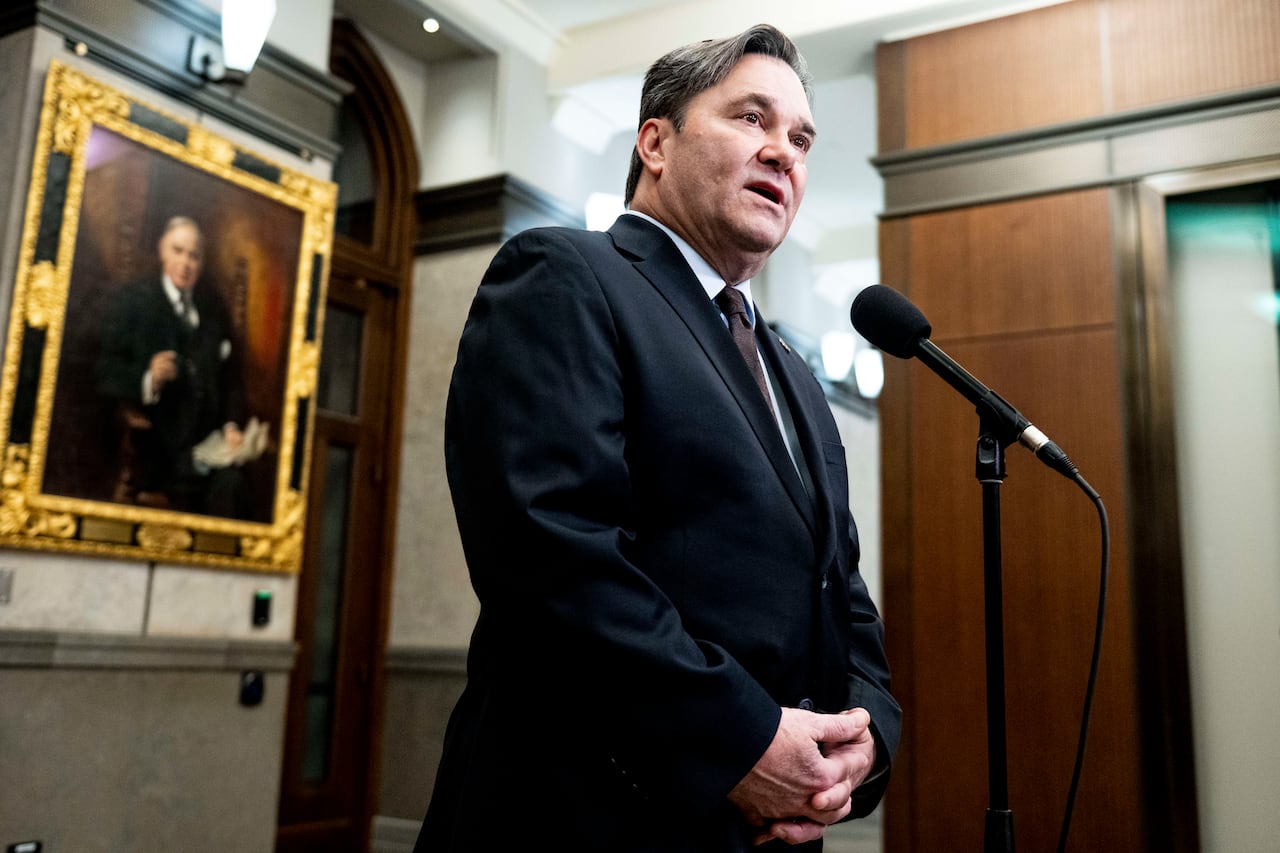 Don Davies, interim leader of the NDP, speaks in the foyer of the House of Commons on Parliament Hill, in Ottawa on Oct. 20. (Spencer Colby/The Canadian Press)
Don Davies, interim leader of the NDP, speaks in the foyer of the House of Commons on Parliament Hill, in Ottawa on Oct. 20. (Spencer Colby/The Canadian Press)When asked whether he wants an election, Davies said, “Personally, I don’t think Canadians want an election ... and frankly, given the serious issues facing us, I’m not sure that an election is good for the country at the moment."
Both the Conservative and NDP caucuses are grappling with what to do about the budget and whether they want to be part of an effort to trigger an election by voting it down, multiple sources told CBC News earlier this week.
The Conservatives have had conversations with the NDP and the Bloc Québécois about how to approach the vote, according to sources. CBC News is not naming the sources because they were not authorized to speak publicly about internal discussions.
One senior NDP source and two Conservative sources say the path believed to be most likely is that some of the NDP’s seven MPs could abstain from voting, allowing the budget to pass.
When asked if everyone has to vote the same way in his caucus, Davies told Barton that “on confidence measures, that’s the rule.” However, the interim NDP leader said abstentions are allowed.
“Our caucus is tight, we’re united. We’ve had a lot of discussions about the upcoming budget, and we’re going to be meeting on Tuesday night and Wednesday and discussing this budget together. And we’ll make that decision together."
Bloc Québécois says it has no plans to abstainBloc Québécois finance critic Jean-Denis Garon told Barton on Sunday morning that his party will also wait until Tuesday to decide on how to vote, but there are no plans to abstain.
"We are members of Parliament. We're elected to vote, and the vote on the budget is an especially important vote," Garon said. "And I can you that whatever way we decide to vote, there's going to be 22 Bloc members of Parliament standing up in the House and voting in the same way."
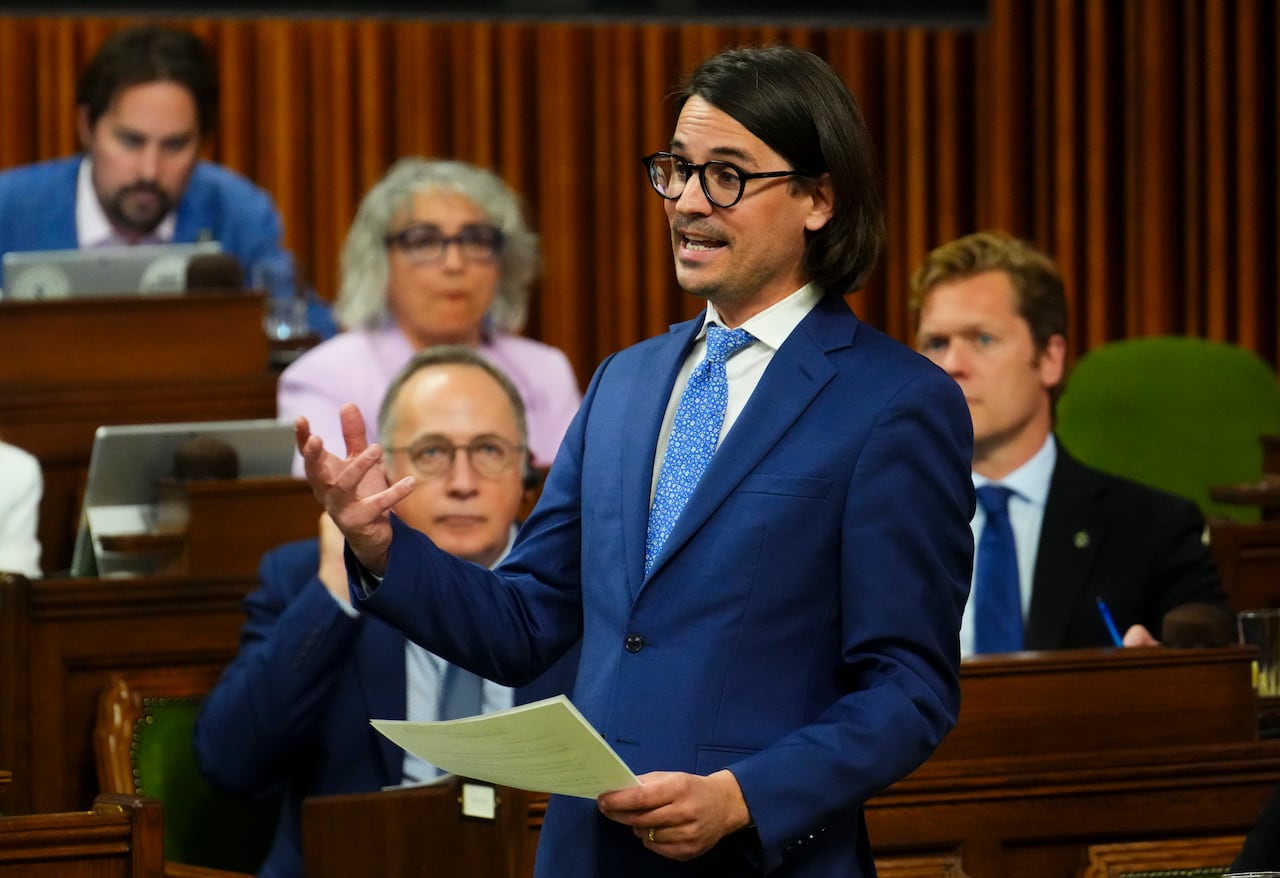 Bloc Québécois finance critic Jean-Denis Garon addresses the House of Commons during question period, in Ottawa on June 11. (Sean Kilpatrick/The Canadian Press)
Bloc Québécois finance critic Jean-Denis Garon addresses the House of Commons during question period, in Ottawa on June 11. (Sean Kilpatrick/The Canadian Press)The Bloc Québécois has also made some expensive demands, including increased Old Age Security payouts, more generous health transfers to the provinces and interest-free loans for first-time homebuyers — policies that are unlikely to be enacted in full given that the government is intent on reining in spending.
Garon criticized the government's budget approach so far and said it doesn't "seem to be interested in doing anything else than threatening Canadians and Quebecers to go [to] an election."
"But it's not too late," he added. "Negotiations can go on until the day before the budget, but it is up to [the Liberals]."


